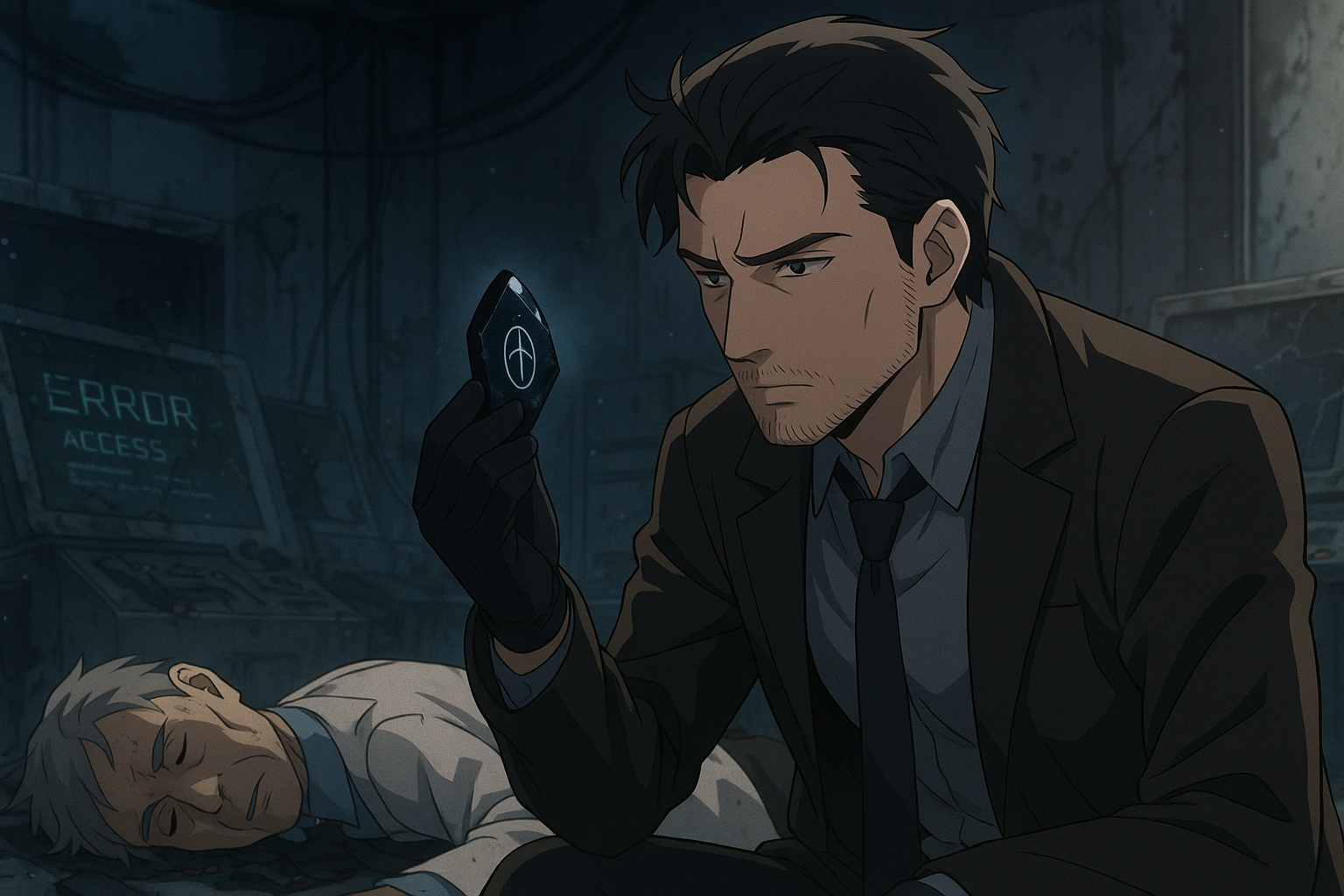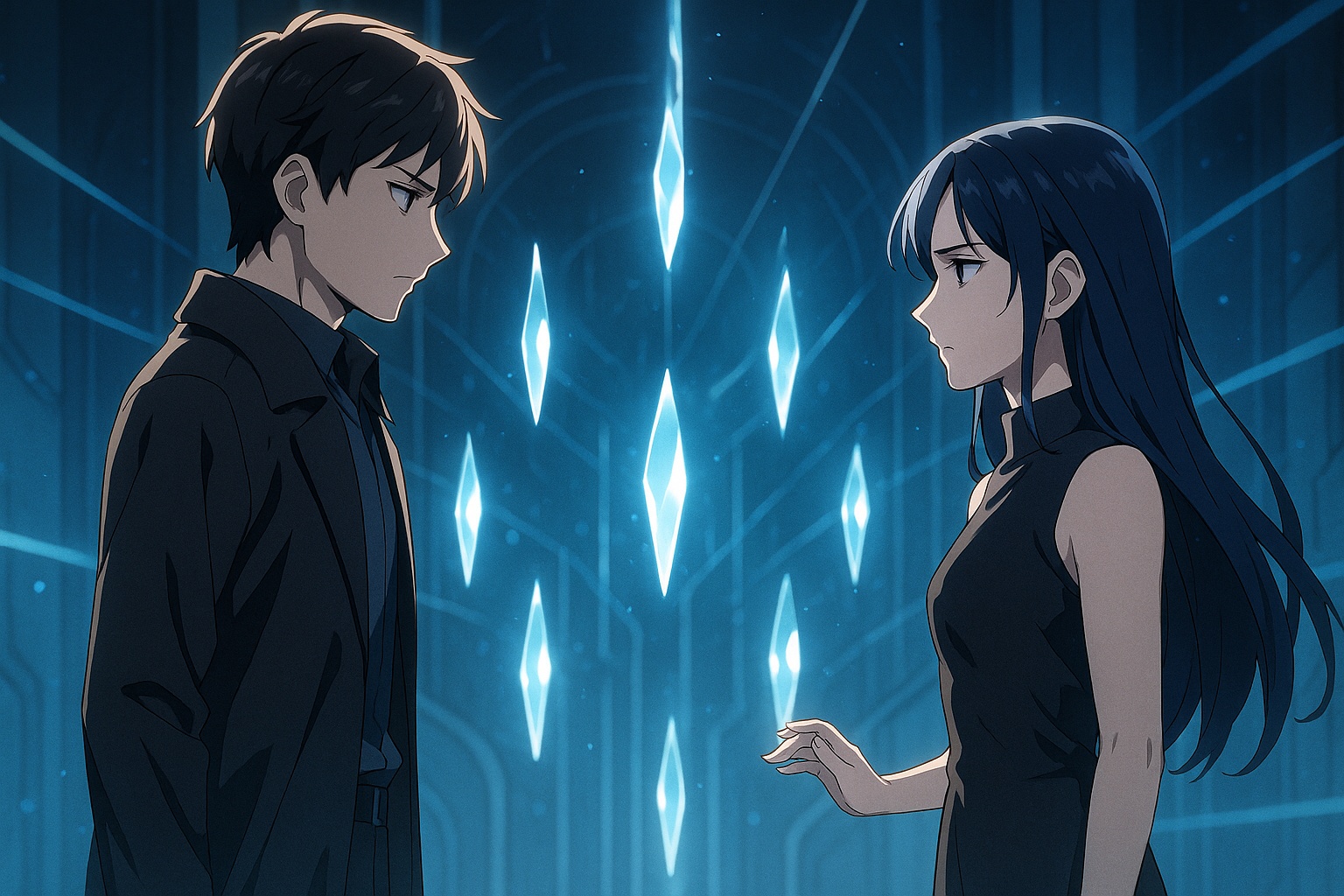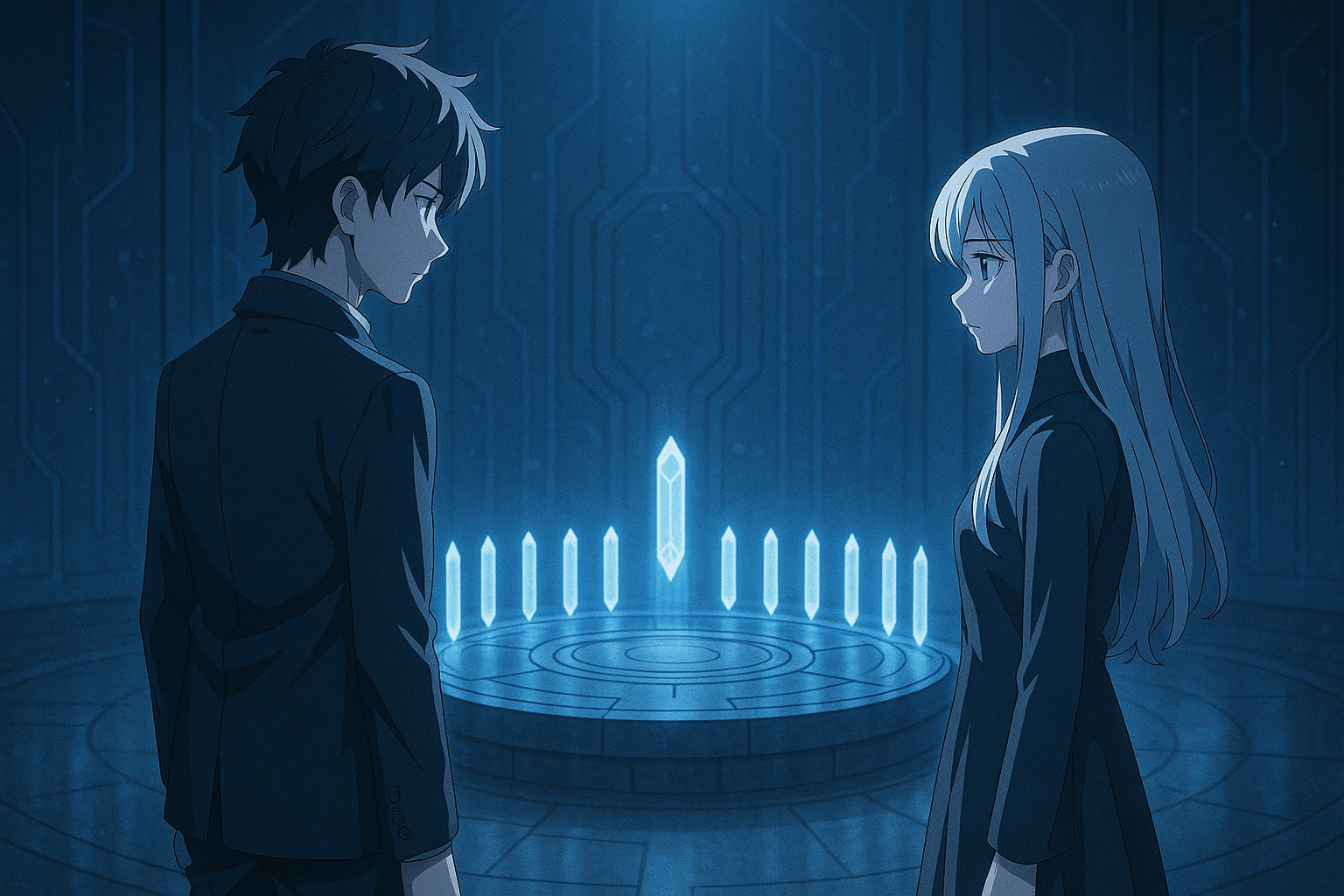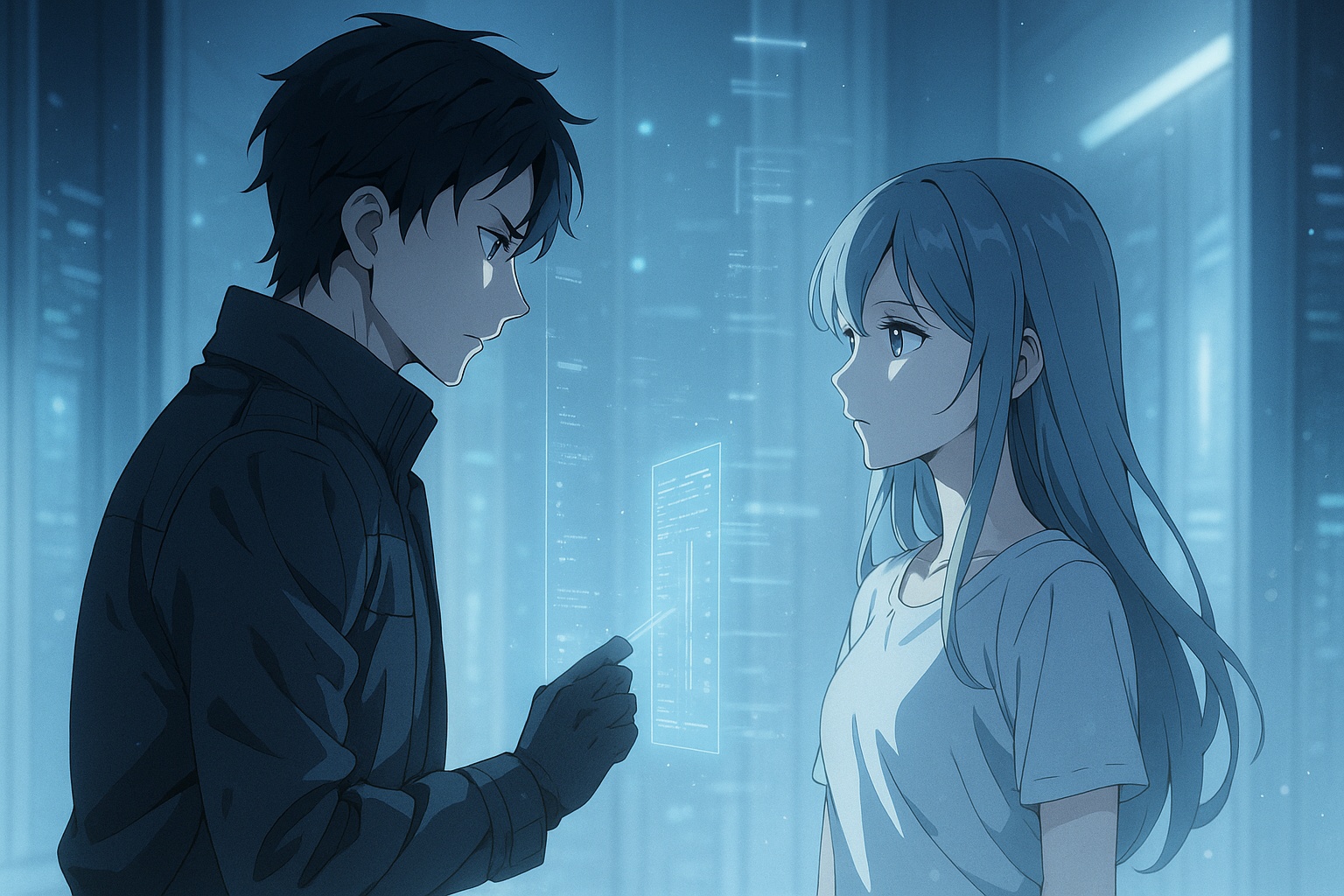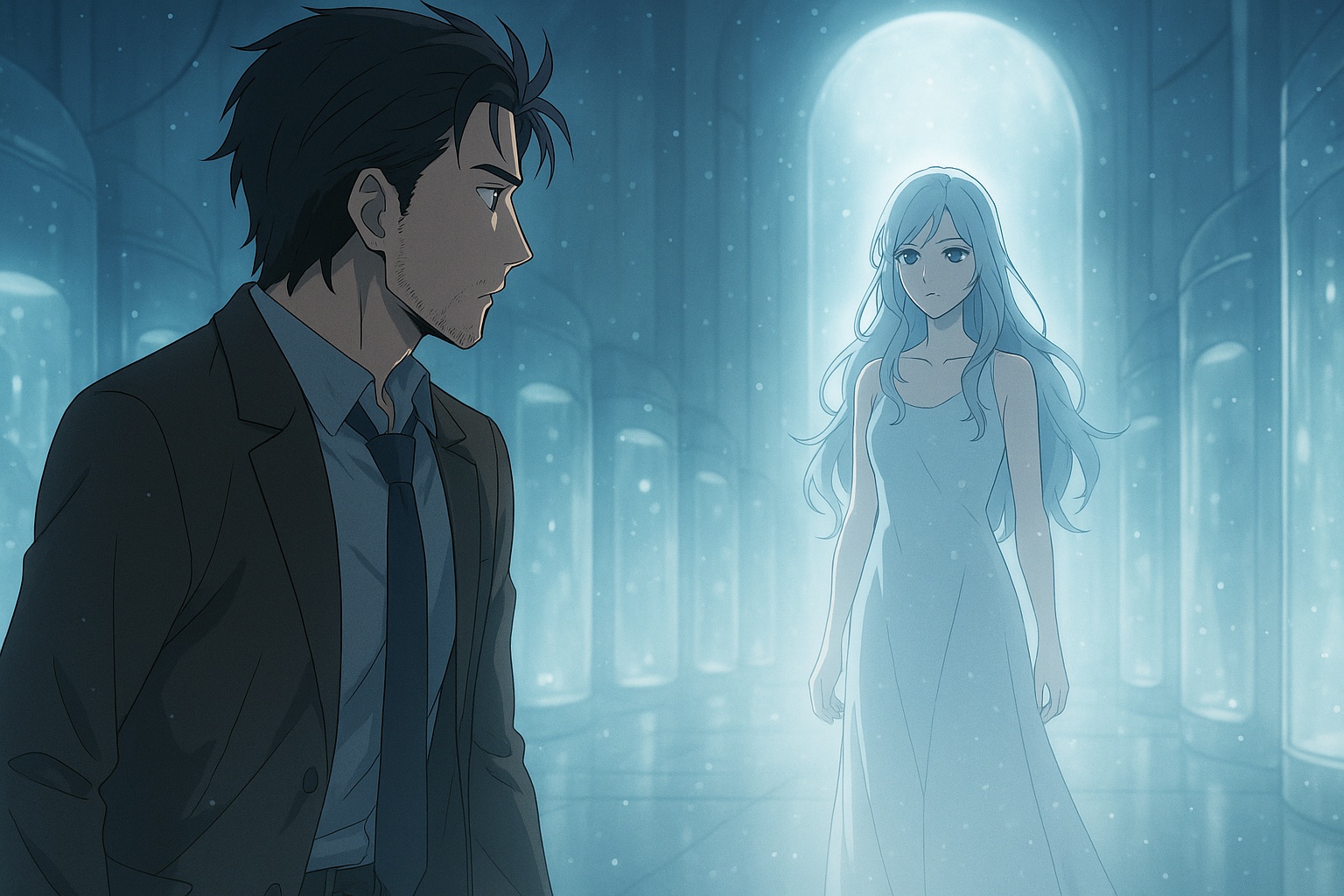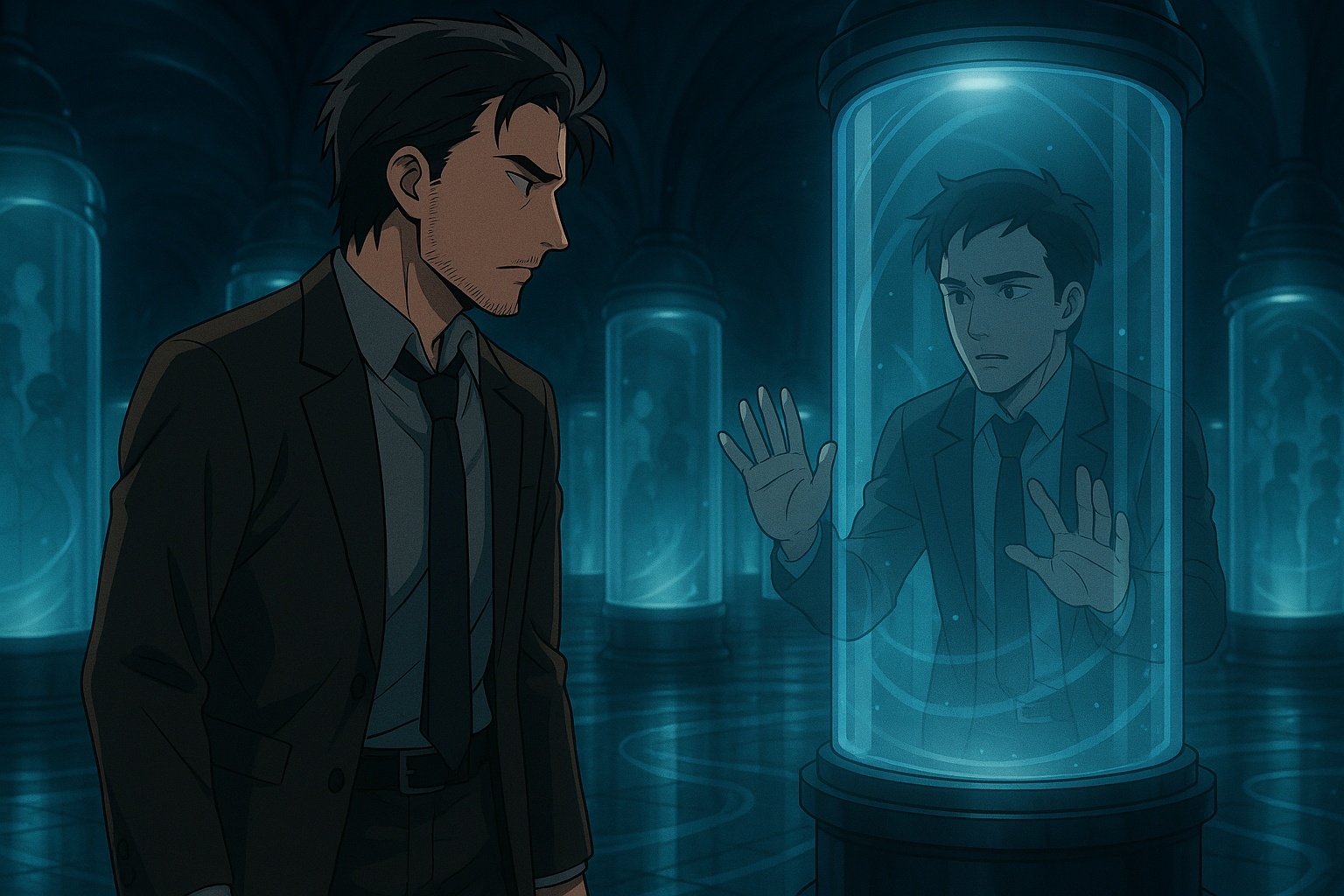The Silence of Abandoned Labs
Elias had never grown accustomed to the silence of abandoned laboratories. Silence here was never empty; it was filled with echoes of machines once alive, with the residue of voices that had whispered secrets only circuits could carry. Now, as he crossed the threshold of the Institute of Memory Research, that silence pressed against him like an invisible hand.
The Scientist’s Final Rest
The body lay at the center of the room. A man in his fifties, pale and rigid, collapsed against the console that had once served as his command station. Dr. Corvin—renowned for pioneering research into mnemonic storage—was reduced to stillness. His glassy eyes reflected the cold shimmer of monitors, all frozen on meaningless static. The air smelled faintly of ozone, as if lightning had struck and left its scar within the walls.
Discovery of the Shard
Elias knelt beside the corpse, not with the detachment of a Custodian but with the weight of someone who knew too well what it meant when memory itself betrayed its keeper. His hands brushed across the desk. Amid shattered screens and scorched circuits lay a single device: a translucent crystal, its surface dark as obsidian but veined with threads of light.
A Memory Shard.
The Mark of the Forbidden
He lifted it carefully. The shard was intact, yet something about it felt fractured—its glow pulsed unevenly, like the heartbeat of a dying star. Then he noticed it: carved into the surface was a symbol, delicate yet deliberate. Three intersecting lines forming a circle that almost closed, yet left a fracture—a door never sealed.
It was no signature of science. It was a mark.
Echo Detected
Behind him, the automated log still whispered in broken code. Words bled across the monitors: ERROR: ACCESS DENIED. ARCHIVE CORRUPTED. ECHO DETECTED.
Echo. The term struck him harder than he expected. In Custodian vocabulary, an Echo was nothing more than residual data, faint impressions left behind when a memory was extracted. But the way the system displayed it—capitalized, glowing, pulsing—it felt more like a presence than a remnant.
Standing at the Threshold
Elias rose, scanning the room once more. There were no signs of forced entry. No struggle, no alarms triggered. Dr. Corvin had died not of violence, but as if drained from within. His final act, Elias suspected, was not to fight an intruder but to record something he should never have touched.
The Memory Shard burned faintly in his hand. The symbol etched upon it seemed to shimmer with an invitation—and a warning.
He thought of the Custodians he had once served. They would erase this room, cleanse the records, and declare the incident an accident. But Elias was no longer bound by their silence. He had left them years ago, carrying scars invisible to the eye, fragments of loyalty and betrayal stored only in his own flesh.
And now, faced with a death that spoke louder than any report, he felt the old weight pressing back. He was not just investigating a crime. He was standing at the threshold of something vast, hidden, and forbidden.
For the first time in years, Elias whispered aloud, his voice almost drowned by the static hum:
“What did you find, Corvin? And why did it kill you?”
The shard glowed faintly in reply, as though it carried not just data—but the first echo of a voice waiting to be heard.

